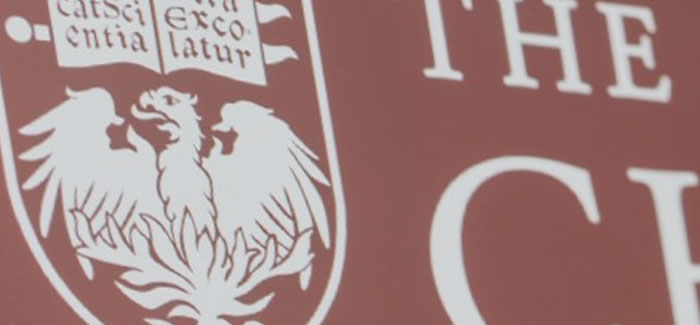
In memoriam
Recent Division of the Social Sciences obituaries.
Faculty
Emmet Larkin
Emmet Larkin, professor emeritus of history, died on March 19 at the age of 84. Larkin was one of the nation's leading scholars of Irish history. Larkin did extensive archival work in Britain, Ireland, and Rome and is remembered for his objectivity in analyzing the influence of the Catholic Church in Ireland. "His analysis relied on an intense study of correspondence among ecclesiastics in Ireland and in Rome, as well as politicians in both Ireland and Britain," said David Miller, PhD'68, professor of history at Carnegie Mellon University and Larkin's former student. "Perhaps the most compelling outcome of his research is his argument that in 1884 the hierarchy came to terms with Irish nationalism in what he describes as an 'informal concordat.' This finding opened a new way of understanding church-state relationships a generation later in a new nation-state." Miller also described Larkin as having "the ideal attributes for an adviser of a graduate student seeking a career in the academic world—he was both demanding and supportive." Read the complete obituary.Peter Novick
Peter Novick, a University of Chicago historian whose specialty was the study of history itself, or historiography, died February 17 at the age of 77. Novick, professor emeritus of history, explored how different views of the past can shape the retelling of history and establish narratives that have a power of their own. Novick's interest in how the past is talked, thought, and written about led to two landmark books: That Noble Dream: The 'Objectivity Question' and the American Historical Profession (Cambridge University Press, 1988) and The Holocaust in American Life (Houghton Mifflin Harcourt, 1999). "That Noble Dream dissected and deflated the 'myth,' as Peter called it, of scientific objectivity that had legitimated the institutionalization of history in the American university from the late 19th century on," said Jan Goldstein, the Norman and Edna Freehling Professor of History. "The Holocaust in American Life developed the even more iconoclastic thesis that a segment of American Jewry had enlisted the Holocaust remembrance as a way of preventing their thoroughgoing assimilation into the American mainstream," Goldstein continued. "What is remarkable about these two books is that in them, Peter trained his powerful intellect on two salient aspects of his own identity: his professional identity as a historian and his cultural identity as a secular American Jew. "While Peter had chosen these topics for intensely personal reasons, his personal involvement never compromised the rigor of his research and analysis," according to Goldstein. "That he was deeply ambivalent about both academic history and Jewishness only raised the stakes. Written in a crystalline prose that appears effortless, the books are stunning works of history-cum-cultural commentary and, from the vantage point of their author, acts of moral courage." A memorial service was held in Bond Chapel on May 22. Read the complete obituary.Alumni
Fred C. Iklé
Fred C. Iklé, AM'48, PhD'50 (Sociology), died November 10 in Bethesda, MD. He was 87. Iklé held federal appointments, including director of the US Arms Control and Disarmament Agency under Presidents Nixon and Ford and undersecretary of defense for policy during both Reagan administrations. He received the 1987 Distinguished Public Service Medal from the Department of Defense. In 1988 Iklé joined the Center for Strategic and International Studies as a distinguished scholar. Also holding positions with Harvard's Center for International Affairs and the RAND Corporation, he published several books, most recently Annihilation from Within: The Ultimate Threat to Nations (Columbia University Press, 2006). An obituary published in the Wall Street Journal stated, "The Cold War ended with a glorious whimper 20 years ago, which means that too few young Americans will have heard of the contributions of Fred Iklé. The far-seeing defense strategist was one of those who helped win that long twilight struggle, as it was once known, without a US-Soviet nuclear exchange."Michael Mussa
Michael Mussa, AM'70, PhD'74 (Economics), a former chief economist at the International Monetary Fund, died of heart failure January 15 in Washington, DC. He was 67. After teaching at the University of Chicago Booth School of Business for 15 years and spending two years as a member of the US Council of Economic Advisers under President Ronald Reagan, Mussa joined the IMF, serving as chief economist from 1999 to 2001. He then became a senior fellow at the Peterson Institute for International Economics, where he remained until his death.
Describing Mussa's contributions as a faculty member, Booth emeritus professor Robert Aliber told Laura M. Browning, AM'06, "Mike was brilliant—and fearless, always ready to challenge his older colleagues and to provide guidance to MBA and PhD students. His technical competence was superb, but he was one of the few with these skills who had a strong sense of relevance. Mike had a keen sense of policy, and how ambitious one might be in advancing policy reforms. He was remarkable in his understanding of public finance, monetary theory and policy, international trade and international money. Few matched his breadth as a one-person department."
